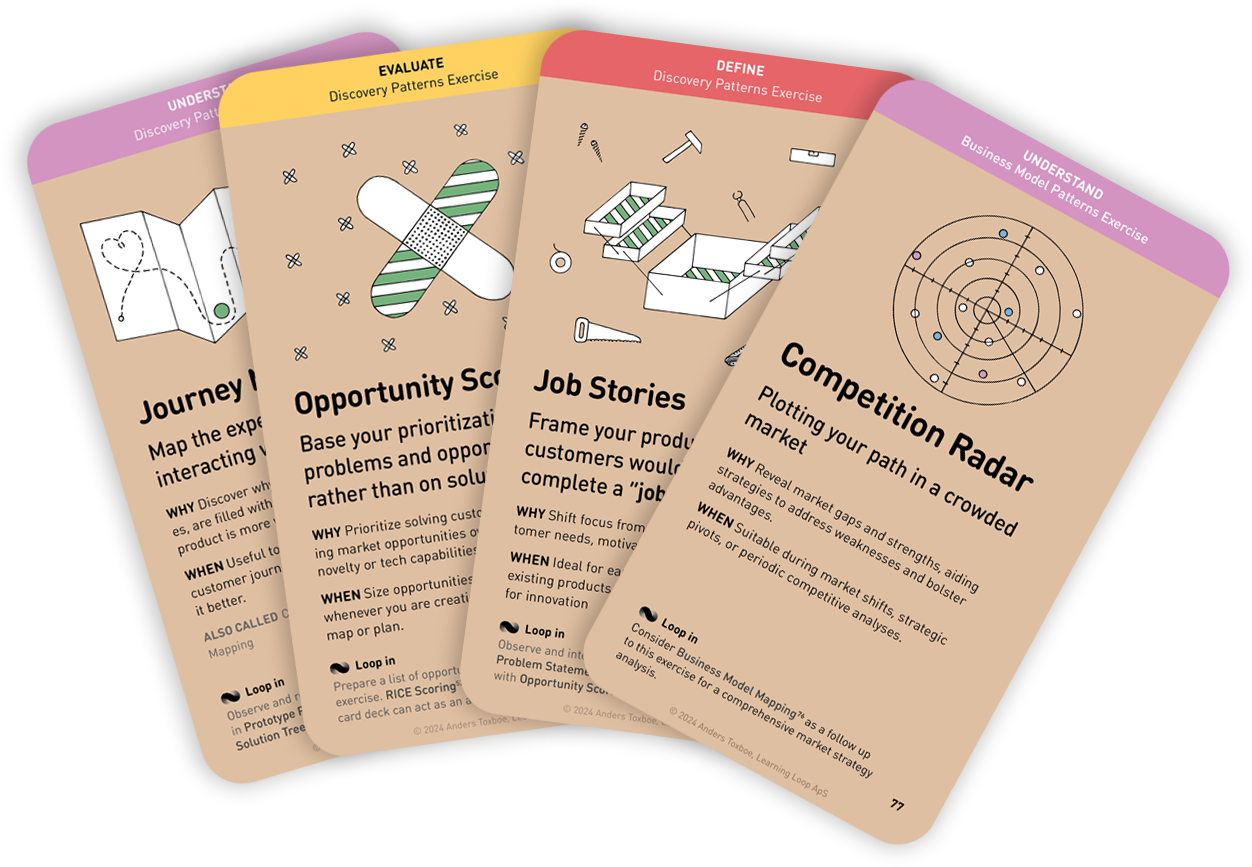Workshop Exercises: Ideate
Behavioral How Might We
Reframe insights and pain points into a solvable question through a behavioral lense

Why: Help teams shift from highlighting user behavior problems to generating questions that open up avenues for behavior change solutions.
When: Useful for reframing insights about user behavior into specific design opportunities. It should be used after user research has identified problematic behaviors that a digital product aims to change.
This “How Might We” exercise is adapted from the traditional “How Might We” exercise known from Design Sprints. It is designed to help behavioral designers leverage the power of solution-focused inquiry to transform behavioral challenges into opportunities for innovation. By reframing insights about user behavior into “How Might We” (HMW) questions, designers can focus on creating interventions that effectively encourage and facilitate positive behavior change.
The purpose of this exercise is to tap into the collective creativity and expertise of the design team to conceive digital products that not only meet user needs but also promote healthier, more productive, or more beneficial behaviors.
Instructions for running this play
- Synthesize behavioral insights from user research from earlier exercises by identifying specific user behaviors that need to be addressed.
-
Explain how to write a How Might We… (HMW) question: by rephrasing a problem or behavioral insight as a question asking one or more solutions.
Example: Insight: Users often forget to track their medication intake, leading to inconsistent adherence.
Question: HMW… design our app to remind users to track their medication in a way that feels seamless and non-disruptive?** - Guide participants to rephrase each behavioral insight or challenge as an HMW question, focusing on the desired behavior change. Each question should be written on a separate sticky note.
- Consider sorting and prioritizing HMW notes with Affinity Mapping and Dot Voting.
- For each prioritized HMW question, encourage the team to generate a broad range of ideas, from incremental improvements to radical redesigns, that could lead to the desired behavior change. Instruct participants to use the Persuasive Patterns card deck for inspiration to ensure that solutions play on human psychology to drive user behavior.
A collection of workshop exercises that will help you ditch dull meetings and facilitate with confidence. It will help you master the design process and have more productive time with your team. The card deck will be ready for purchase in the end of 2026 and is now undergoing rigorous testing.
Reserve your deck!